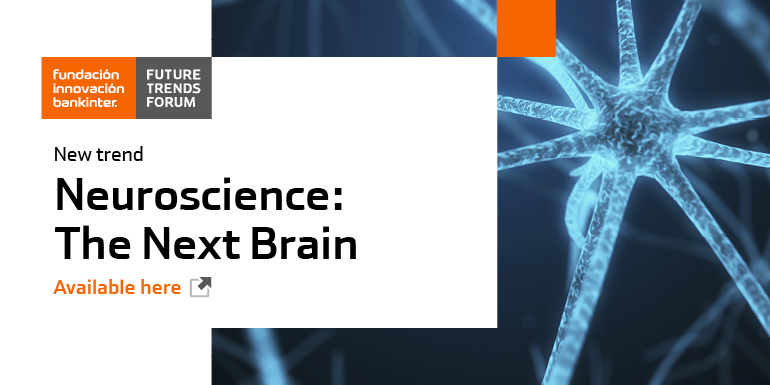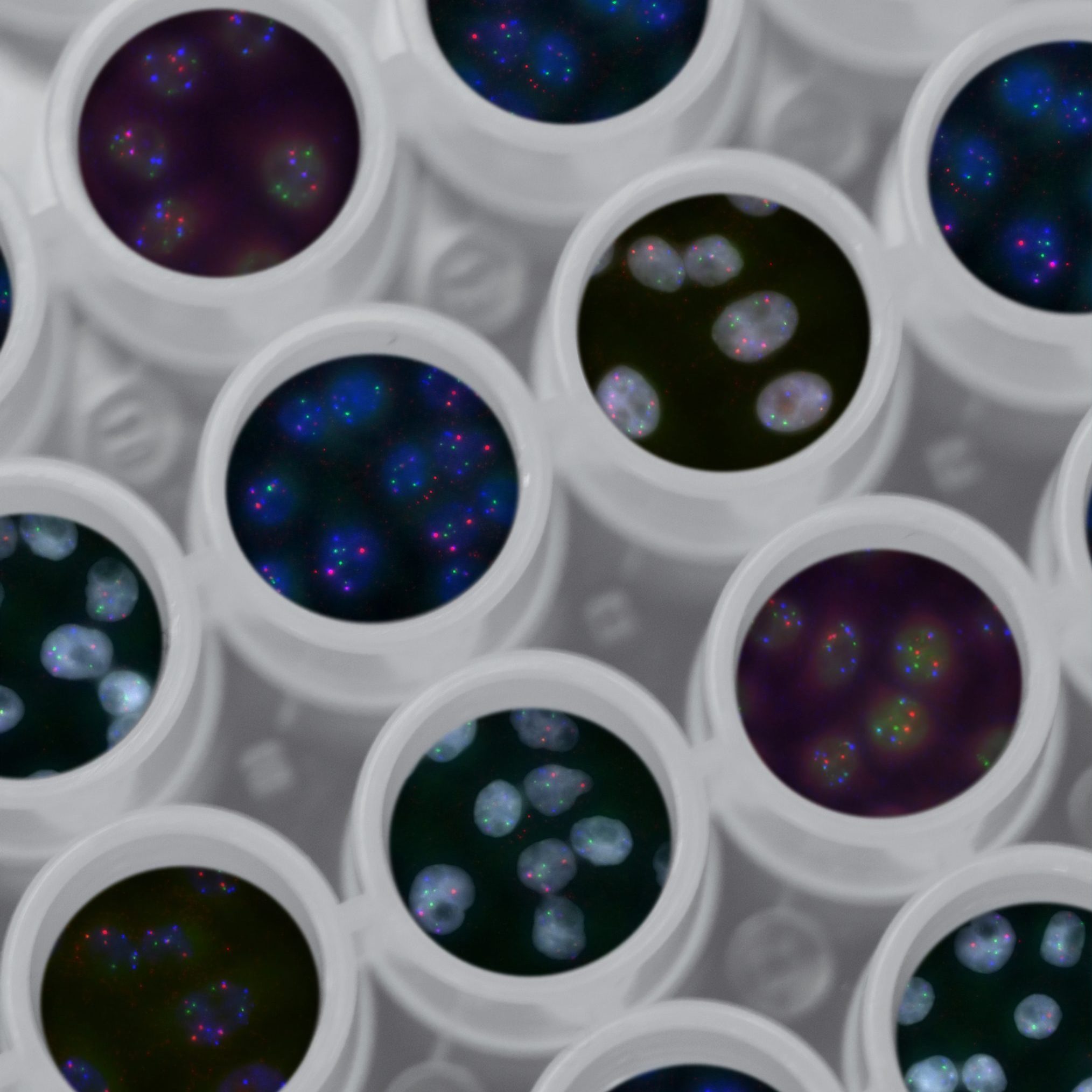Neuroscience
What is neuroscience, and what does it study?

Neuroscience arises with the aim of understanding the functioning and structure of the nervous system from different approaches, through different methodologies and techniques.
Our brain defines us, processes the world around us and determines how we respond to stimuli.
Processes, such as falling in love, recognizing yourself or remembering a place by its smell, all take place inside the brain. But this organ can also be dysfunctional due to diseases, injuries or developmental disorders that affect us to the point of losing our sense of proprioception or our ability to communicate. Neuroscience studies all of these processes.
The official Spanish definition of neuroscience is “the science that studies the nervous system and each one of its diverse aspects and specialized functions.” While this definition is correct, experts at the Future Trends Forum, held in Madrid in November 2019, believe that the definition leaves some elements out. Considering the complexity of the processes that take place inside the brain, a more accurate definition of neuroscience would specify its goal of understanding the functioning and structure of the nervous system using different approaches, methodologies and techniques.
To further develop neuroscience, we need to take into account the following considerations:
- Cooperation among a myriad of disciplines is essential to unraveling the hidden details of the brain and the nervous system–disciplines such as chemistry, physiology, psychology, pharmacology, genetics, different types of engineering and, more recently, computing.
- New findings prove that there is no such thing as one type of neuroscience. Instead, there are several types that are concerned with areas such as brain structures, neural synapses and mental processes, as well as emotions and neurological and mental disorders.
- Currently, neuroscience is ineluctably related to new technologies. Thanks to them, brain imaging is as detailed as ever; we can enhance ourselves through brain-computer interfaces and even create machines with feelings due to artificial intelligence. The development of computing, big data, virtual reality, nanotechnology and DNA sequencing machines, among other technologies, are redefining this scientific discipline.
Now, we will go deep into detail about the three main areas of neuroscience today.
Beyond the Brain
Historically, neuroscience has focused on the brain, but Antonio Damasio believes that, even though that approach has been successful, neuroscience needs to shift its attention towards other functions of the nervous system instead of just the brain. This has already begun, focusing on functions such as perception, attention, memory, movement or language. Damasio states that the brain should be studied within the context of general biology.
Antonio DamasAntonio Damasio is convinced that the more knowledge about the brain and the entire nervous system we have, the better our health will be and, therefore, the better we will live.
Mental Health
According to the World Health Organization, more than 300 million people in the world struggle with depression, and 260 million people have anxiety. These two disorders are the most widespread across the planet, but there are other disorders that cause even more damage. The number of schizophrenia and bipolar disorder diagnoses, among many others, including autism spectrum disorder, keeps increasing. These disorders are truly challenging for society, since their long-term effects entail an emotional, financial and productivity cost that takes its toll on society.
On top of mental, emotional and developmental disorders, there are other neurodegenerative diseases such as Alzheimer’s or Parkinson’s. Neuroscience studies them to learn about how they affect the brain and how to find a cure or improve their treatments.
Neuroscience still needs to face challenges, but so far, the development of this discipline has allowed us to learn many other things about mental and neurodegenerative disorders. “Alzheimer’s disease, depression and a myriad of mental disorders put primary feelings, their management and their organization at risk,” says Antonio Damasio. By improving our knowledge about the functioning of the brain, we can better understand how mental disorders relate to this organ.
At the FTF, we discussed several important points about how neuroscience works towards a better understanding of mental health and its disorders:
- Studying neural connections allows us to observe the brains of patients and look for similarities and differences among different disorders. Additionally, we can identify dysfunctional connection patterns and take action by designing tailor-made therapies.
- Perfecting treatments or medication. By using technologies such as neuroimaging, we are discovering the decisive neurobiological and genetic factors of different disorders. This allows us to develop diagnoses as well as new, almost personalized, therapies.
In this video, expert Juan Carlos Lopez explains how the last 20 years have seen the rise of new approaches in personalized medicine and predisposition, such as genetic applications and other molecular tools, for gaining a better understanding of patients’ conditions.
Our experts foresee a promising future for the development of neuroscience. The more we know about the brain (its neurons, its connections), the more we will know about the dysfunctions that cause disorders; therefore, we will make progress, in terms of both treatment and prevention. Our experts state that we will be able to predict some mental disorders even before patients are aware of them.
Additionally, in the future we will develop small molecules that will make all the difference when treating neurodegenerative and neuropsychiatric disorders. Finally, technology will be a turning point, “particularly wearable devices, which will be helpful in the treatment of psychiatric disorders such as anxiety and depression, or neurological disorders like migraines or epilepsy”, states expert Ng Wai Hoe.
The conclusion drawn from this is that many neuroscience efforts focus on learning more about the human brain and the disorders that affect it, always striving to gain more knowledge and discover potential treatments. Juan Carlos López is a neuroscientist with broad experience in drug discovery, and he recommends that we take into account the following:
- Treatment personalization. Mental illnesses are really a compilation of disorders. If we observe 100 schizophrenic patients, we will see they all have different symptoms. That is why we need personalized treatments. The problem is that medication tends to be more affordable when developed with a large group of people in mind.
- Therapeutic modality. Choosing the modality of therapy is essential for this type of medication.
- Regulation. We need flexible regulation to put this type of medication on the market.
- Technology. It is important to choose between existing technology and the possibility of creating new technology, particularly regarding treatments with an already appropriate standard of care. This especially concerns cognitive enhancement. Caffeine is a clear example. We could say that caffeine improves cognition, but if we invented something just a little bit better than caffeine, would we buy it? It would have to be a truly revolutionary product for us to consider it a better alternative to what we now have.
- Access. Cost will determine who has access to these new therapies.








